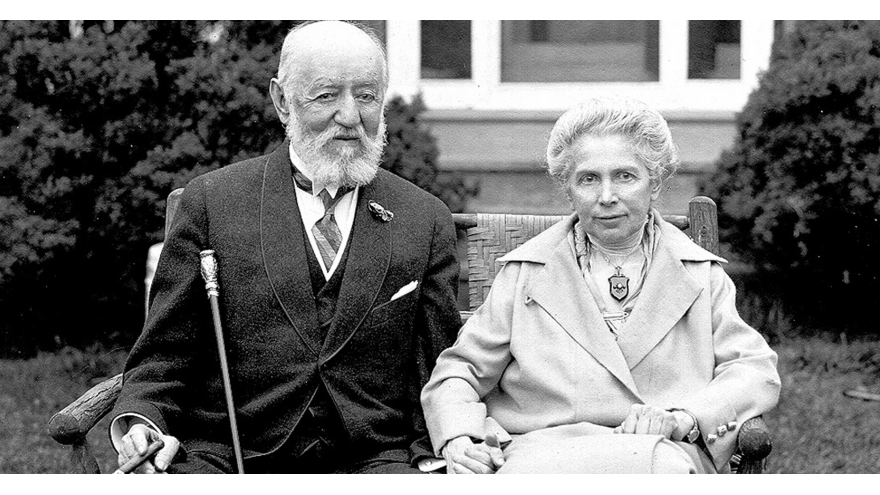Born to a Jewish family in Bavaria in 1848, Nathan Straus, along with his brother, Isidor, sold products to Macy’s department store, eventually becoming co-owners of the famed retail institution in Manhattan. Deeply committed to improving health care and general well-being, especially among the poor, Nathan used his considerable wealth and political connections as commissioner of the New York City Parks and Health departments to fund many health-related initiatives, including the fight against childhood diseases and tuberculosis.
Although Straus did not lead a particularly religious life, when he and his wife, Lina Gutherz Straus, visited the Jewish homeland in Ottoman-controlled Palestine in 1904, they were powerfully moved by their visit, experiencing “a strange and intense desire to return to the land.” Becoming ideologically committed Zionists, they began a long campaign of philanthropy to causes in British Mandate Palestine. Over the next two decades, Straus made substantial contributions to a number of large projects for improving health care, sanitation and education in the yishuv. The Strauses also built pasteurization plants (a cause he had previously championed in the United States), soup kitchens and employment centers.
In 1912, tragedy struck the Straus family. Nathan, Isidor and their wives had traveled to Europe to attend an international tuberculosis conference in Rome. After the conference, Isidor and his wife, Ida, journeyed across the Atlantic on The Titanic. As the ship sank into the frigid waters, precious spots on a lifeboat were offered to the Strauses (most likely due to their advanced age, fame and fortune). Isidor, however, recognizing that there were not enough lifeboats to save everyone aboard, refused a lifeboat. Ida, in turn, refused to part with her husband. Sadly, both went down with the ship.
Legend has it that Nathan and Lina were to return to the United States with Isidor and Ida aboard The Titanic as well. Instead, fortuitously, the couple decided to spend the remainder of their spring in Palestine. Following the death of his brother and sister-in-law, Nathan felt he had been spared; in turn, he and Lina dedicated even more of their time and wealth towards philanthropy for Zionist causes.
Nathan’s heightened commitment to the development of Jewish institutions and communities in pre-state Israel continued through the end of his life. Upon his death, he left two-thirds of his estate to Jewish institutions in Palestine. In his most lasting legacy, a tiny new Jewish city on the Mediterranean coast was named in his honor. Netanya (“Natan” is Hebrew for Nathan) is now a bustling, prosperous and growing town in the vibrant Jewish state.


























